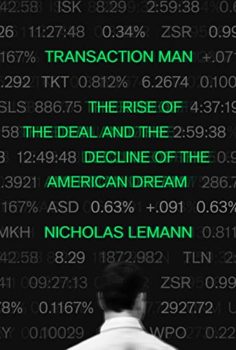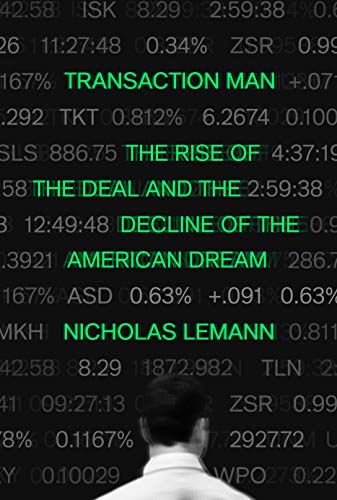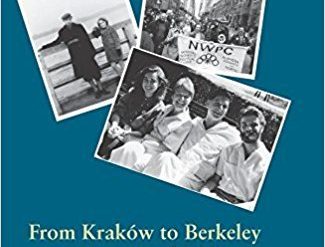
The Industrial Revolution came late to the United States, but when it started in earnest following the Civil War its impact on American society was nothing short of revolutionary. Suddenly, an institution called the corporation assumed an ever-greater role in the life of the American people. Its influence was felt not just economically but politically and socially as well—influence so profound and (many thought) pernicious that even the notoriously corrupt Congress was moved to pass legislation to curb the excesses of the huge corporate structures called trusts. And the Sherman Anti-Trust Act, passed in 1890, was just the beginning.
Estimated reading time: 6 minutes
As the Progressive Era unfolded a decade later with the entry of Theodore Roosevelt into the White House, the battle over the role of the corporation in American society rose to the top of the political agenda, and it remained there for decades to come. The debate swirling around that question early in the 20th century is the subject in the early chapters of Transaction Man by the eminent journalist Nicholas Lemann. The book is a brilliant inquiry into the big economic ideas that have dominated the American political process over the past century—and resulted in today’s extreme economic inequality.
Transaction Man: The Rise of the Deal and the Decline of the American Dream by Nicholas Lemann (2019) 322 pages ★★★★★
Three big ideas have guided policymakers
Lemann traces the evolution of the three “big ideas” that have guided economic policymakers in the decades since World War I. He characterizes them as institutions, transactions, and networks. Institutions included large corporations, labor unions, federal government agencies, and other traditional repositories of power and authority—the forces responsible for the unparalleled prosperity of the United States in the decades following World War II. He identifies transactions as the governing reality in the American economy from the 1980s until the first decade of the 21st century—a reality that emerged on the basis of government policies and judicial decisions grounded in the work of the champions of laissez-faire economics of the Chicago School. However, today networks are gaining the ascendancy, a manifestation of the power of Facebook, Google, Amazon, Apple, and Microsoft in the United States and Baidu, Alibaba, and Tencent in China.
These three ideas “have a common thread. They share a kind of conceptual grandeur, a conviction that if we aim at producing a good society by adopting one all-encompassing principle, the result will be positive for everybody.” But Lemann soundly rejects this notion. Instead, he finds inspiration in the long-forgotten work of an early 20th-century intellectual named Arthur F. Bentley.
Lemann urges policy to favor pluralism and reduce economic inequality
In a book titled The Process of Government: A Study of Social Pressures, Bentley advocated what Lemann characterizes as pluralism. Instead of building social policy around an overarching idea, he contends that the best and fairest outcome results from the interaction of contending interest groups. Of course, today we might think he was proposing identity politics, but that isn’t the case. “Bentley had no use for such broad concepts as class, race, leadership, or the public, because they did not pertain to self-consciously organized group activity. Only groups mattered. Groups could just as easily form around social or moral causes . . . as narrow economic interests. States and cities were ‘locality groups,’ the legal system as a collection of ‘law groups,’ income categories were ‘wealth groups,’ devoted followers of a popular politician were ‘personality groups. . .”
Lemann laments the tragic outcome of the neoliberal consensus that emerged beginning in the 1970s, which has born fruit in economic inequality as severe as that during the Gilded Age more than a century ago. And the inequality grew explosively in the economic reversal of 2007-8 that upended the lives of so many millions of people around the world—another consequence of the neoliberal consensus that eviscerated the regulatory agencies which might have prevented it.
A lively focus on individual players
To tell his story, Lemann shows off his journalistic chops, focusing on individual people. Among his principal subjects are:
- Adolf Berle, a wunderkind (admitted to Harvard at thirteen) who became one of the most influential members of FDR’s Brain Trust;
- the people of a transitional Southwest Chicago neighborhood called Chicago Lawn, including a Buick dealer, an African-American homeowner and activist, and a priest who was a community organizer;
- the economists of the Chicago School, most notably Mike Jensen;
- Werner Erhard, founder of est;
- the leaders of the investment bank Morgan Stanley, including Dick Fisher and John Mack;
- Bill Clinton’s economic team, principally Larry Summers, Bob Rubin, and Alan Greenspan;
- Silicon Valley billionaire Reid Hoffman, founder of LinkedIn and an early principal in PayPal.
Today the Transaction Man mentality rules, and so does economic inequality
At the outset of Transaction Man, Lemann acknowledges his debt to William Whyte, author of the bestselling 1956 book, The Organization Man.
“Today the Transaction Man mentality,” Lemann writes, “which is neither liberal nor conservative, is as deeply rooted as the Organization Man mentality was when William Whyte conferred a name on it. When a challenge presents itself—how to educate our children, how to fight poverty, how to change politics, how to improve the tone of a polarized society—any proposed solution that can be characterized as relying on bureaucracies, organizations, government agencies, or established interest groups is doomed to lose the argument. Only innovation, disruption, destructuring, and individualizing can possibly work.”
The rise of such businesses as Uber, Airbnb, and other “transaction network” companies is just one manifestation of this reality. “Transaction Man (who may be a woman, of course) often works in a job that is literally transactional, in such fields as trading financial instruments, private equity, venture capital, and hedge funds . . . Transaction Man is often in the business of breaking corporations apart and rearranging them in ways that have made it just about impossible for anybody these days to be an Organization Man.”
Minor errors mar the story
On the whole, Lemann does an admirable job of sifting through the historical record to find the hidden threads of his story. However, from time to time, he slips up. For example, he refers to a list of big tech companies noting that “all but Apple had living founders,” neglecting co-founder Steve Wozniak, who is very much alive today. And he reports that “the term ‘six degrees’ comes from a paper by the psychologist Stanley Milgram, published in 1969.” The truth is that the term “six degrees of separation” first appeared in print in a Hungarian short story in 1929. Lemann would have benefited from a fact-checker.
About the author
Nicholas Lemann has been a staff writer for The New Yorker for two decades. He came to the magazine after lengthy stints at the Washington Monthly, Texas Monthly, and the Atlantic Monthly. He served for two five-year terms as Dean of the Graduate School of Journalism at Columbia University and is currently Dean Emeritus. He is the author of five books.
For related reading
You’ll find this book in good company on my post, Good books about economic inequality.
I’ve read many other excellent books about economics, including A First-Class Catastrophe: The Road to Black Monday, the Worst Day in Wall Street History by Diana B. Henriques (A lucid and thoroughly researched account of what’s wrong on Wall Street) and The Summit: Bretton Woods, 1944: J. M. Keynes and the Reshaping of the Global Economy by Ed Conway (Bretton Woods: clashing personalities determined our economic history).
You might also be interested in:
- Top 20 popular books for understanding American history
- My 10 favorite books about business history
- 20 top nonfiction books about history
- Gaining a global perspective on the world around us
And you can always find my most popular reviews, and the most recent ones, on the Home Page.


























